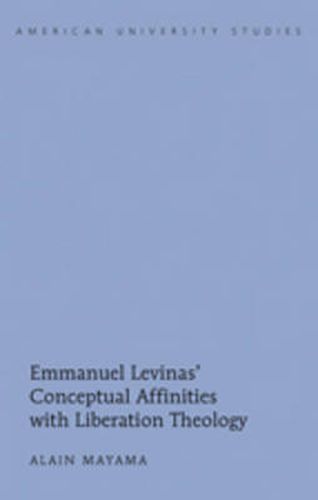Readings Newsletter
Become a Readings Member to make your shopping experience even easier.
Sign in or sign up for free!
You’re not far away from qualifying for FREE standard shipping within Australia
You’ve qualified for FREE standard shipping within Australia
The cart is loading…






Emmanuel Levinas’ Conceptual Affinities with Liberation Theology analyzes Levinas’ work in relation to two important liberation theologians, Gustavo Gutierrez and Jon Sobrino, whose scholarship, like his, needs to be brought into greater contemporary debate about the subject’s encounter with the other. More specifically, this book argues that for Levinas, Gutierrez, and Sobrino, commitment to the neighbor is the necessary context for understanding God. They posit the human other as the possibility of the subject’s subjectivity. To be human is to act with love toward one’s neighbor. Thus, the author articulates the possibility of reading Levinas’ philosophy as a revalidation of one of the truths of Christianity: the concern for the humanity of every human person as expressed in Christian theology in general and liberation theology in particular. In order to show the relevance of Levinas’ philosophy for Christian theology in general, the author discusses three Christian scholars, Enrique Dussel, Jean-Luc Marion, and Michael Purcell. Although they challenge some aspects of Levinas’ philosophy, they nevertheless see its significance for Christian theological anthropology. The discussion concludes by proposing Levinas’ philosophy and liberation theology’s turn to the neighbor as significant for addressing contemporary socio-political and ethnic conflicts in sub-Saharan Africa.
$9.00 standard shipping within Australia
FREE standard shipping within Australia for orders over $100.00
Express & International shipping calculated at checkout
Emmanuel Levinas’ Conceptual Affinities with Liberation Theology analyzes Levinas’ work in relation to two important liberation theologians, Gustavo Gutierrez and Jon Sobrino, whose scholarship, like his, needs to be brought into greater contemporary debate about the subject’s encounter with the other. More specifically, this book argues that for Levinas, Gutierrez, and Sobrino, commitment to the neighbor is the necessary context for understanding God. They posit the human other as the possibility of the subject’s subjectivity. To be human is to act with love toward one’s neighbor. Thus, the author articulates the possibility of reading Levinas’ philosophy as a revalidation of one of the truths of Christianity: the concern for the humanity of every human person as expressed in Christian theology in general and liberation theology in particular. In order to show the relevance of Levinas’ philosophy for Christian theology in general, the author discusses three Christian scholars, Enrique Dussel, Jean-Luc Marion, and Michael Purcell. Although they challenge some aspects of Levinas’ philosophy, they nevertheless see its significance for Christian theological anthropology. The discussion concludes by proposing Levinas’ philosophy and liberation theology’s turn to the neighbor as significant for addressing contemporary socio-political and ethnic conflicts in sub-Saharan Africa.